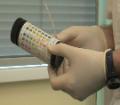-
Courses

Courses
Choosing a course is one of the most important decisions you'll ever make! View our courses and see what our students and lecturers have to say about the courses you are interested in at the links below.
-
University Life

University Life
Each year more than 4,000 choose University of Galway as their University of choice. Find out what life at University of Galway is all about here.
-
About University of Galway

About University of Galway
Since 1845, University of Galway has been sharing the highest quality teaching and research with Ireland and the world. Find out what makes our University so special – from our distinguished history to the latest news and campus developments.
-
Colleges & Schools

Colleges & Schools
University of Galway has earned international recognition as a research-led university with a commitment to top quality teaching across a range of key areas of expertise.
-
Research & Innovation

Research & Innovation
University of Galway’s vibrant research community take on some of the most pressing challenges of our times.
-
Business & Industry

Guiding Breakthrough Research at University of Galway
We explore and facilitate commercial opportunities for the research community at University of Galway, as well as facilitating industry partnership.
-
Alumni & Friends

Alumni & Friends
There are 128,000 University of Galway alumni worldwide. Stay connected to your alumni community! Join our social networks and update your details online.
-
Community Engagement

Community Engagement
At University of Galway, we believe that the best learning takes place when you apply what you learn in a real world context. That's why many of our courses include work placements or community projects.
GPs
Information for GPs
Antibiotic Resistance (AMR) 
The development and spread of AMR in bacterial pathogens is one of the greatest threats facing modern day health care.
AMR can occur naturally in bacteria, but is catalyzed by the overuse and inappropriate use of antibiotics. This includes;
- Prescribing the wrong type of antibiotic
- Prescribing the wrong duration of treatment
- Prescribing the wrong dose of antibiotic
What does AMR mean?
- Infections are more difficult to treat, making it harder to select the right antibiotic without laboratory test results.
- For some infections, very few antibiotic options will be available, meaning more expensive antibiotics are required.
- Patients with an AMR infection will generally experience a longer illness, with higher health care costs and poorer health outcomes.
Guidelines for Antimicrobial Prescribing in Primary Care in Ireland
Delayed antibiotic treatment for UTI (cystitis)
Recent clinical research has demonstrated that up to 47% of suspected UTI in primary care can resolve naturally, without the need for antibiotic treatment.
In approximately half of suspected UTI patients, symptoms can resolve naturally, meaning an antibiotic may not be required.
Recommending a patient with a suspected UTI to wait 48 hours before commencing treatment will ensure that antibiotics are only used when absolutely necessary.
This approach can help reduce the amount of antimicrobials being consumed by patients and limit the development of AMR in the community.

-143x103.jpg)
















